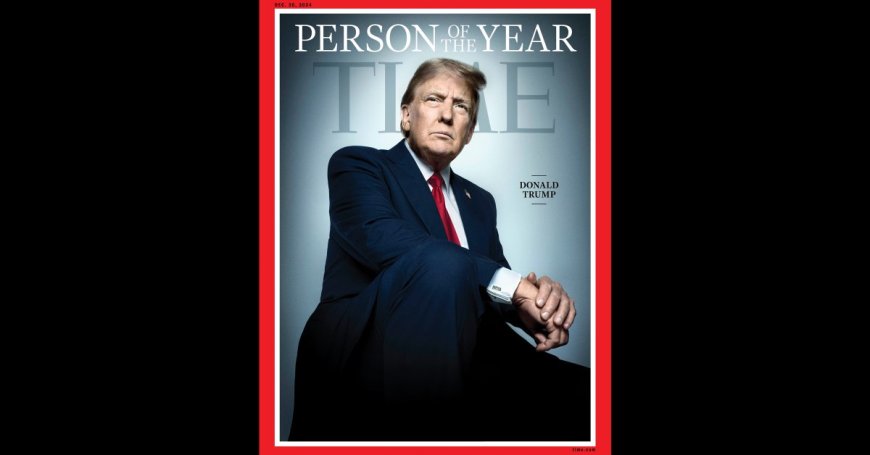Donald Trump
Three days before Thanksgiving, the former and future President of the United States is sitting in the sun-filled dining room of his Florida home and private club. In the lavish reception area, more than a dozen people have been waiting for nearly two hours for Donald Trump to emerge. His picks for National Security Adviser,…


Three days before Thanksgiving, the former and future President of the United States is sitting in the sun-filled dining room of his Florida home and private club. In the lavish reception area, more than a dozen people have been waiting for nearly two hours for Donald Trump to emerge. His picks for National Security Adviser, special envoy to the Middle East, Vice President, and chief of staff huddle nearby. All afternoon, Trump pipes music throughout the 1927 oceanfront estate from a 2,000-song playlist he curates: Sinéad O’Connor’s “Nothing Compares 2 U,” ABBA’s “The Winner Takes It All,” James Brown’s “It’s a Man’s Man’s Man’s World.” [time-brightcove not-tgx=”true”]
For 97 years, the editors of TIME have been picking the Person of the Year: the individual who, for better or for worse, did the most to shape the world and the headlines over the past 12 months. In many years, that choice is a difficult one. In 2024, it was not.
Since he began running for President in 2015, perhaps no single individual has played a larger role in changing the course of politics and history than Trump. He shocked many by winning the White House in 2016, then led the U.S. through a chaotic term that included the first year of a pandemic as well as a period of nationwide protest, and that ended with his losing the election by 7 million votes and provoking the violent attack on the U.S. Capitol on Jan. 6, 2021. The smart money wagered that we had witnessed the end of Trump.

If that moment marked Trump’s nadir, today we are witnessing his apotheosis. On the cusp of his second presidency, all of us—from his most fanatical supporters to his most fervent critics—are living in the Age of Trump. He dispatched his Republican rivals in near record time. For weeks, he campaigned largely from the New York courtroom where he would be convicted on 34 felony counts. His sole debate with President Joe Biden in June led to his opponent’s eventual exit from the race. Sixteen days later, he survived an assassination attempt at a campaign rally. In the sprint that followed, he outlasted Vice President Kamala Harris, sweeping all seven swing states and emerging from the election at the height of his popularity. “Look what happened,” Trump told his supporters in his election-night victory speech. “Isn’t this crazy?” He almost couldn’t believe it himself.
Trump has remade American politics in the process. He won by enlarging his base, seizing the frustration over rising prices and benefiting from a global turn against incumbents. With those tailwinds, exit polls suggest that he won the largest percentage of Black Americans for a Republican since Gerald Ford and the most Latino voters of any GOP nominee since George W. Bush. Suburban women, whose anger over restrictions to reproductive rights was thought to be a bulwark for the Democrats, moved not away but toward him. He became the first Republican in 20 years to win more votes than the Democrat, with 9 of 10 American counties increasing their support for Trump from 2020.
Now we watch as members of Congress, international institutions, and global leaders once again align themselves with his whims. The carousel of Trumpworld characters spins anew. This time, we think we know what to expect. Supporters cheer even his promises to take revenge on his enemies and dismantle the government. In a matter of weeks, Trump will be returning to the Oval Office with his intentions clear: tariff imports, deport millions, and threaten the press. Put RFK Jr. in charge of vaccines. Chance war with Iran. “Anything can happen,” he told us.
Sitting with TIME three weeks after the election, Trump was more subdued than when we visited him at Mar-a-Lago in March. He is happiest to be in a fight, and now that he has won, he sounded almost wistful, recognizing that he had run for office for the final time. “It’s sad in a way. It will never happen again,” Trump told us. And while he is thinking about how that chapter has ended, for Americans and for the world, it is also the beginning of a new one. Trump is once again at the center of the world, and in as strong a position as he has ever been.
Over time, we’ve seen the Person of the Year franchise shift: from Man of the Year to its current designation; from the period between the world wars, defined by leaders like Mohandas Gandhi and Wallis Simpson, to the first quarter of the 21st century, an era marked by the tremendous changes ushered in by a technological revolution. Although the American presidency has evolved across these eras, its influence has not diminished. Today, we are witnessing a resurgence of populism, a widening mistrust in the institutions that defined the last century, and an eroding faith that liberal values will lead to better lives for most people. Trump is both agent and beneficiary of it all.
For marshaling a comeback of historic proportions, for driving a once-in-a-generation political realignment, for reshaping the American presidency and altering America’s role in the world, Donald Trump is TIME’s 2024 Person of the Year.


























































